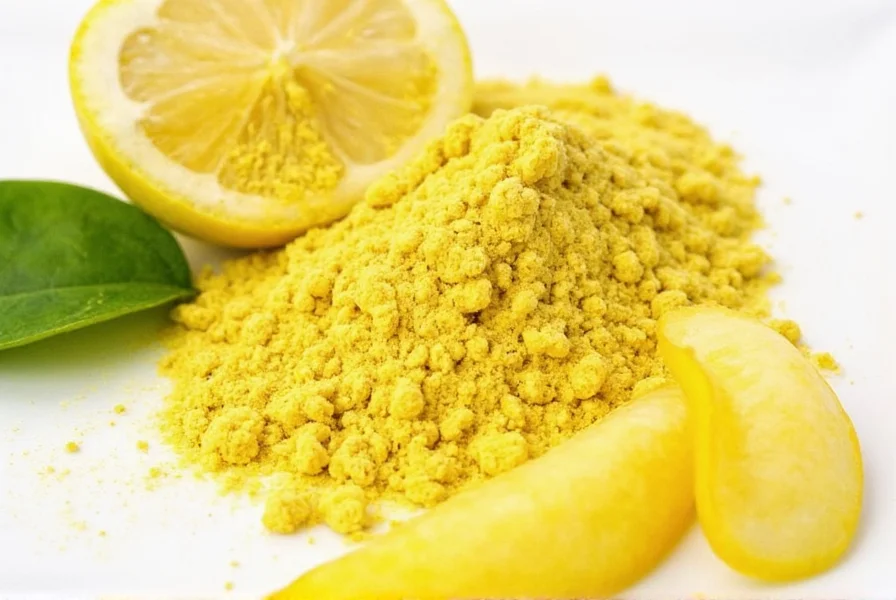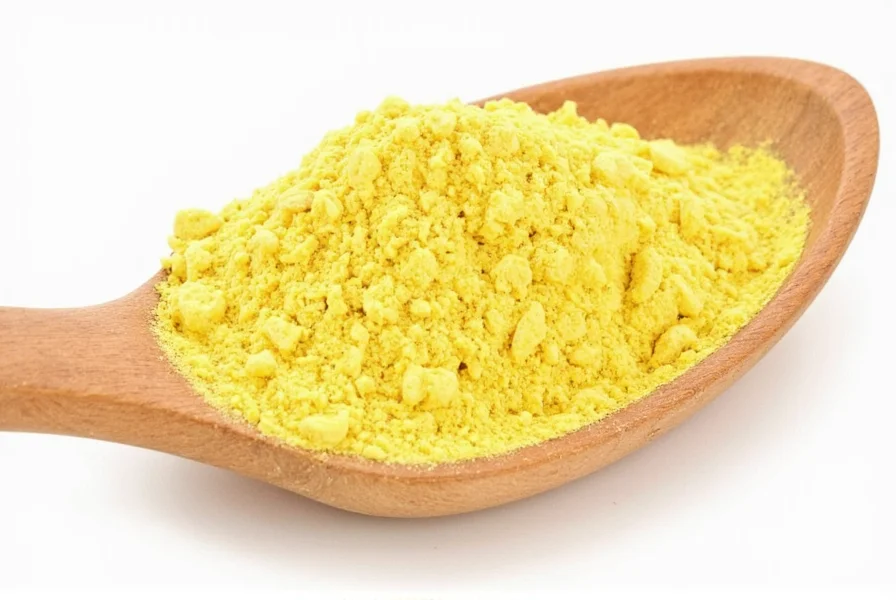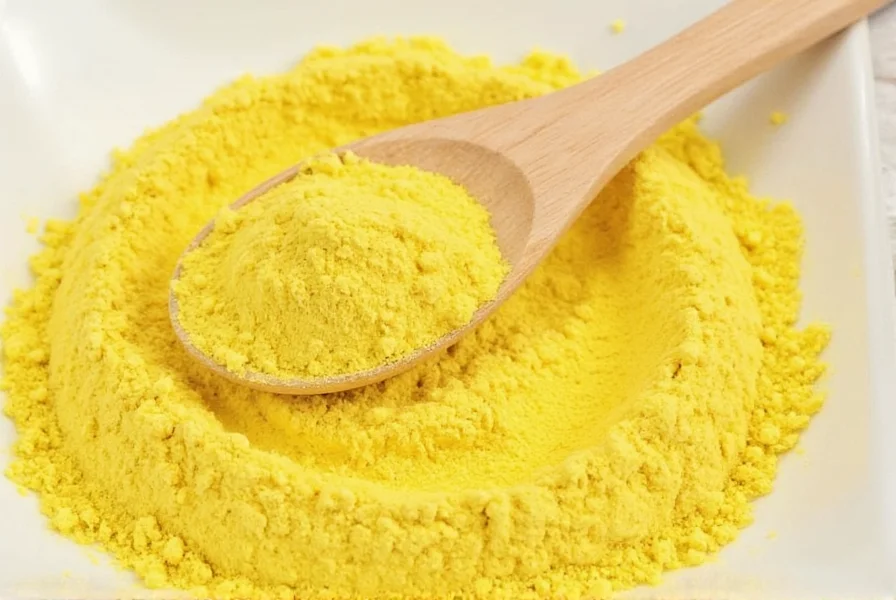Understanding Lemon Peel Powder: Nature's Concentrated Citrus Treasure
Lemon peel powder transforms what's often discarded into a nutritional powerhouse. Unlike the fruit's pulp, the peel contains significantly higher concentrations of beneficial compounds. When properly processed, this fine powder preserves up to 90% of the bioactive components found in fresh lemon zest, making it an efficient way to incorporate citrus benefits year-round without waste.
What Exactly Is Lemon Peel Powder?
Lemon peel powder consists of finely ground, dehydrated lemon zest (the outer colored layer of the peel, excluding the bitter white pith). The production process involves:
- Careful washing and organic certification verification (when applicable)
- Precision removal of just the zest layer
- Low-temperature dehydration to preserve nutrients
- Grinding into a fine, consistent powder
- Testing for purity and microbial safety
This meticulous process ensures the powder maintains maximum nutritional integrity while achieving a shelf-stable form that doesn't require refrigeration.
Nutritional Composition of Lemon Peel Powder
Lemon peel powder contains significantly higher concentrations of beneficial compounds than the fruit's juice. The table below shows key nutritional components per tablespoon (approximately 5g):
| Nutrient | Amount per Tbsp | % Daily Value | Significance |
|---|---|---|---|
| Vitamin C | 15mg | 17% | Antioxidant, immune support |
| Dietary Fiber | 1.2g | 4% | Digestive health |
| Calcium | 12mg | 1% | Bone health |
| Potassium | 45mg | 1% | Electrolyte balance |
| Limonene | 120mg | N/A | Anti-inflammatory properties |
| Hesperidin | 85mg | N/A | Flavonoid with antioxidant effects |
What makes lemon peel powder particularly valuable is its high concentration of polyphenols and flavonoids, which research suggests may support various aspects of health. The drying process concentrates these compounds, making a small amount of powder nutritionally equivalent to a much larger quantity of fresh zest.
Science-Backed Health Benefits
Multiple studies have examined the compounds in lemon peel, revealing several potential health benefits:
Antioxidant Properties: Lemon peel contains up to 5-10 times more vitamin C and flavonoids than the juice. These compounds combat oxidative stress, which contributes to chronic disease development. Research published in the Journal of Agricultural and Food Chemistry found citrus peel extracts demonstrated significant free radical scavenging activity.
Digestive Support: The dietary fiber and natural compounds in lemon peel powder may stimulate digestive enzymes and promote healthy gut motility. A 2020 study in Nutrients journal noted citrus flavonoids' potential benefits for gastrointestinal health.
Anti-Inflammatory Effects: Limonene, the primary compound in lemon oil found in the peel, shows promising anti-inflammatory properties in preclinical studies. While more human research is needed, these findings suggest potential benefits for inflammatory conditions.
Skin Health Applications: When used topically in appropriate concentrations, lemon peel powder's astringent and antioxidant properties may benefit skin health. However, direct application requires dilution to prevent photosensitivity.
Practical Culinary Applications
Understanding how to use lemon peel powder in cooking transforms ordinary recipes. Unlike fresh zest, the powder offers consistent flavor without moisture content, making it ideal for:
- Baking: Add 1/2 teaspoon to cake batters, cookies, or breads for citrus flavor without altering liquid ratios
- Dry Rubs: Combine with herbs and spices for poultry, fish, or vegetable seasoning
- Beverages: Stir into teas, smoothies, or water for flavor and potential health benefits
- Desserts: Dust over finished desserts or incorporate into custards and mousses
- Homemade Cleaners: Mix with baking soda for natural cleaning paste
When substituting lemon peel powder for fresh zest, use a 1:3 ratio (1 teaspoon powder replaces 1 tablespoon fresh zest). For best flavor release, mix the powder with a small amount of liquid before adding to recipes.

Creating Your Own Lemon Peel Powder
Making lemon peel powder at home ensures freshness and avoids potential additives. Follow these steps for optimal results:
- Choose organic lemons to avoid pesticide residues
- Wash thoroughly with a produce brush
- Use a microplane to remove only the colored zest (avoid white pith)
- Spread zest in a single layer on a dehydrator tray
- Dehydrate at 95°F (35°C) for 6-8 hours until completely dry
- Grind in a spice grinder to fine powder
- Store in an airtight container away from light
Properly stored homemade lemon peel powder maintains quality for 6-12 months. Commercial products typically have a 12-18 month shelf life when stored correctly.
Storage Best Practices
To maximize shelf life and preserve nutritional content:
- Store in an airtight container away from light and moisture
- Keep in a cool, dark place (not the refrigerator, which introduces moisture)
- Consider adding a food-safe desiccant packet
- Check for clumping or color changes indicating degradation
- For extended storage, freeze in vacuum-sealed containers
Properly stored lemon peel powder maintains its vibrant color and citrus aroma for up to 18 months. Discard if you notice mold, off odors, or significant color changes.
Lemon Peel Powder vs. Fresh Lemon Zest: When to Use Which
Each form offers distinct advantages depending on your application:
- Fresh zest provides: Brighter, more volatile aromatic compounds; preferred for delicate dishes where fresh flavor profile matters most
- Powder offers: Concentrated flavor; longer shelf life; consistent measurement; no moisture content (critical for dry applications)
For baking applications requiring precise liquid ratios, lemon peel powder often performs better than fresh zest. In applications where immediate aromatic impact matters (like finishing dishes), fresh zest may be preferable. Many professional chefs keep both forms available for different culinary needs.
Safety Considerations and Proper Usage
While generally safe for culinary use, consider these important points:
- Lemon peel may contain pesticide residues if not organically grown - always choose organic for consumption
- Limit to culinary amounts (typically 1/2-1 teaspoon daily) unless under professional guidance
- Avoid excessive consumption if taking certain medications (consult healthcare provider)
- Perform patch test before topical use due to potential photosensitivity
- Not recommended for infants or young children in therapeutic amounts
The FDA recognizes lemon peel as generally safe for food use, but therapeutic applications should involve professional consultation, especially for individuals with medical conditions or taking medications.

Conclusion: Maximizing Lemon Peel's Potential
Lemon peel powder transforms what's typically discarded into a valuable, shelf-stable ingredient with significant nutritional benefits. By understanding its proper usage, storage, and limitations, you can incorporate this citrus treasure into your culinary and wellness routines effectively. Whether purchased commercially or made at home, this concentrated form of lemon zest offers a sustainable way to reduce food waste while gaining access to the nutritional compounds concentrated in the peel. As with any natural product, moderation and proper usage ensure you receive the maximum benefits while minimizing potential risks.
Frequently Asked Questions
What is the difference between lemon peel powder and lemon zest?
Lemon zest refers to the freshly grated outer colored layer of lemon peel, while lemon peel powder is dehydrated and ground zest. The powder has a longer shelf life, more concentrated flavor, and no moisture content, making it ideal for dry applications where fresh zest would alter liquid ratios.
How much lemon peel powder equals fresh lemon zest?
The standard substitution ratio is 1 teaspoon of lemon peel powder for 1 tablespoon of fresh lemon zest. This 1:3 ratio accounts for the concentration that occurs during dehydration. For best results, mix the powder with a small amount of liquid before adding to recipes to help release the flavors.
Can I use lemon peel powder for skin care?
Lemon peel powder contains beneficial compounds for skin, but requires careful use. Always dilute significantly (1 part powder to 10 parts carrier) and perform a patch test first. Avoid sun exposure after application due to potential photosensitivity from citrus compounds. For therapeutic skin applications, consult a dermatologist before use.
How long does homemade lemon peel powder last?
Properly stored homemade lemon peel powder maintains quality for 6-12 months. Store in an airtight container in a cool, dark place away from moisture. Commercial products typically last 12-18 months. Discard if you notice clumping, color changes, or off odors, which indicate degradation of the product.
Is lemon peel powder safe to consume daily?
For culinary use (typically 1/2-1 teaspoon daily), lemon peel powder is generally safe for most adults. However, therapeutic amounts should be discussed with a healthcare provider, especially if you have medical conditions or take medications. Always choose organic powder to avoid pesticide residues, and discontinue use if you experience any adverse reactions.











 浙公网安备
33010002000092号
浙公网安备
33010002000092号 浙B2-20120091-4
浙B2-20120091-4